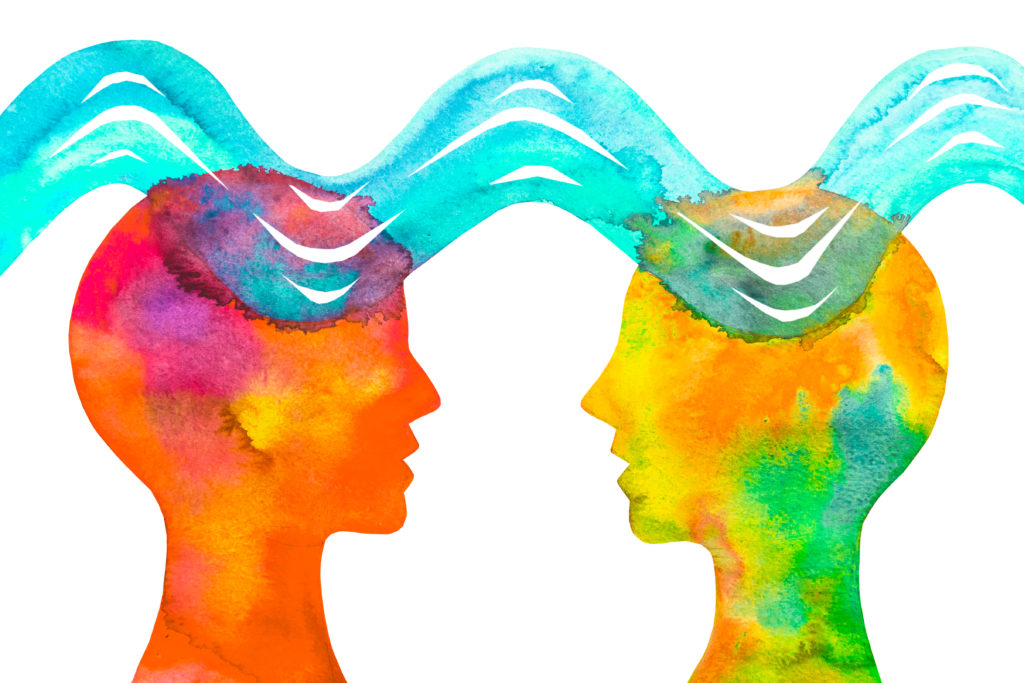What are the symptoms of love addiction?
To protect themselves from painful and unbearable emotions, humans resort to addictive behaviors. The consequences of such behaviors are often ignored, and they can only be overcome if the addiction is uncontrollable.
Love addicts devote a lot of time and energy to the person they are addicted to. Love addicts usually consider this person above themselves, and their obsession with him is often extreme and obsessive.
As a result, love addicts neglect themselves and their needs in different ways, and by ignoring important aspects of their well-being, they focus all their attention and energy on their loved one.
Addiction to love is not necessarily confined to romantic or sexual relationships. A person such as this may be obsessed with friends, children, their teacher, a religious figure, or even a movie star they have never seen.

How does love addiction work?
A love addict’s only fantasy is that another person will handle all the problems in his life, always pay attention to him and give him positive and unconditional treatment, and take good care of him in any situation. When these unrealistic needs are not met, people who are addicted to love may feel resentful and have difficulties in their relationships.
When these people are not addicted to a romantic relationship, they can take care of themselves. In such a relationship, however, their ability to take care of themselves rapidly decreases.
Often, people become addicted to romantic relationships in adulthood as a result of being rejected by their parents in their early years. Often, these people do not receive the approval, love, and relationship with their parents that they need in childhood.
This negatively affects their self-esteem in adulthood, causing a conscious fear of abandonment and an unconscious fear of intimacy with others. From the perspective of a person who is addicted to love, the intensity of a relationship is often confused with the degree of intimacy of the relationship.
It takes self-knowledge and an understanding of basic emotions to get rid of love addiction. These steps include overcoming denial and accepting the addiction. Identify the harmful consequences of this type of addiction and intervene to prevent the onset of the addiction cycle.
Lastly, love addicts need to go through the mourning process in order to address their latent emotional pain, which lies at the core of their addiction.
Love addicts experience withdrawal symptoms during treatment. Working with a therapist can aid these people in talking about their childhood withdrawal experiences, overcoming painful feelings, fear, anger, and emptiness they may experience during the recovery process, as well as releasing old emotions that lead to active behaviors.
Love is a beautiful feeling that everyone deserves. Almost all human beings strive to love one another and to love one another.
However, sometimes love can also manifest in unhealthy ways. These unhealthy and sometimes destructive conditions force some people to act strangely and irrationally, to the detriment of themselves and the people they care for.
A person who is addicted to love has unhealthy and obsessive desires for the person they love.
Someone who is addicted to love will also find it challenging to create and maintain healthy relationships. Addicts who suffer from this type of addiction usually have unrealistic standards and expectations of love, and when those expectations are not met, it further deteriorates their mental state.
Often, people argue that love addiction should not be classified as a mental health disorder. Others believe that people with the disease experience real and debilitating symptoms.
Such people often have unhealthy relationships with their partners and seek to control them. An addicted person may display behaviors and impulses that are beyond his or her control, just like those who are addicted to other forms of addiction. Nonetheless, with proper treatment and care, these people can become aware of their unhealthy behaviors and attitudes towards romantic relationships and learn how to build healthy and romantic relationships.

Addiction to love symptoms
While the symptoms of love addiction vary from person to person, the most common symptom is an unhealthy pattern of attention to your partner that causes you to become obsessed with interacting with him, such as over-contacting or checking the phone constantly.
Addicts live in a chaotic world surrounded on the one hand by their immediate emotional needs and on the other by frustration and emotional despair. People who are afraid of being left alone or rejected are always searching for that special person to complete them.
The irony is that people who are addicted to love often have many opportunities to experience true intimacy in life. Although they are intensely attracted to intense and extreme “love,” they are not attracted to real intimacy and healthy relationships. Therefore, they spend most of their time looking for that “special person.”
They base almost all of their life choices on their desires. Choosing a wardrobe, exercising in the club, finding hobbies and activities that are appealing to them, and how to talk to and socialize with others.
People who are really looking for a long-term and healthy relationship will find that intense feelings early on will serve as catalysts to create the bond necessary to build and maintain an intimate relationship. However, people addicted to love become addicted to the intense romantic feelings associated with early in the relationship, and because of this, their relationship never goes beyond this initial stage and they do not experience true intimacy or a long-term relationship.
After a short time in a relationship, they experience feelings such as separation, sadness, restlessness, irritability, and dissatisfaction, because those strong initial feelings are gone. Those who are not in a relationship feel hopeless, unworthy and lonely until they find a potential new spouse and experience “love” again.
The following emotions and behaviors often accompany love addiction:
The constant need to be in an emotional relationship
Commitment and falling in love without really knowing each other.
They are constantly moving from one relationship to another in search of love.
He is never satisfied in any relationship.
Obsession and dependence on your partner.
Being in an abusive relationship just to be in a relationship.
Suffering from depression and destructive behavior after separation from your partner.
Making sacrifices to satisfy your partner.
Ignoring the needs of his family or himself to be with his emotional partner
In an emotional relationship, staying away from friends and ignoring financial and personal responsibilities.
Jealousy and possessiveness when your partner talks or spends time with others.
When a partner lacks an emotional partner, he or she feels lost or separated.
Feeling overly reliant on your partner
She prioritizes her relationship with her partner over any other personal relationship in her life, sometimes to the point of neglecting her relationships with family and friends.
Whenever her and her husband’s romantic efforts are not reciprocated, she feels depressed.
It’s not appropriate to try to have a romantic relationship with someone you know all the time.
They find it difficult to leave toxic or unhealthy relationships.
Making wrong decisions because of how he feels about his partner (for example, leaving the family or leaving the job).
Having obsessions and unhealthy attitudes about your spouse or fiancé is so disruptive to his or her life.
Intense sexual experiences are not synonymous with love.
They are always looking for a romantic relationship.
They put all their effort into pleasing the other person and are constantly afraid to upset him when they are in a relationship.
Loss of initial vigor and excitement in an intimate relationship.
Unbearable loneliness.
Since they are not in a relationship, they are forced to fill their loneliness and emptiness with sex and fantasy.
They often choose partners for their relationships who are not emotionally available or who harass them verbally or physically.
They tend to choose partners who need a lot of attention and care but do not meet their emotional or physical needs.
In order to maintain or satisfy their emotional partner, they engage in activities that do not interest them or are contrary to their personal values.
There are many other symptoms of love addiction that are not explained above. Symptoms of this disorder are very wide and unique, as are the ways in which people express their feelings. A person’s symptoms reflect the way he expresses his feelings.
The severity of love addiction symptoms also varies. Some symptoms, such as repeated contact, may seem harmless, however others, such as chasing a person in the real world or online, or even preventing people from interacting with them, can lead to negative outcomes.
In all relationships there may be some of the above symptoms, but in love addiction there is usually a pattern of one or more symptoms (usually several), and this pattern has persistent and negative effects on people’s lives.
Love addicts are always looking for something outside of themselves. It takes a person, a relationship, or even an experience to create emotional stability in your life. Love addicts use romantic experiences and emotional stimuli to (temporarily) correct themselves and feel emotionally stable.

Method of detection
In medical circles and communities, there has been much discussion about whether love addiction should be classified as a mental disorder. As a result, the diagnosis is more difficult than other mental disorders.
Researchers created the “Love Addiction List” in 2019 to help identify love addiction disorder. This list includes a series of questions that can be used to diagnose love addiction.
Love addiction can affect anyone. Some people, however, are more prone to this type of addiction than others. The following are some factors that make a person more likely to develop this addiction:
Addiction to love can be a learned pattern of behavior, and if the child grows up in a home where one parent is addicted to love, he or she may believe that this behavior is normal and so will continue the vicious cycle.
Hormonal status: Some people have higher levels of hormones than others. It can affect their sexual desire and feelings. People with high levels of sex hormones may be more likely to develop this kind of addiction.
People who have been emotionally, physically, or sexually abused as children or in their first relationships are more likely to develop a sexual or love addiction. There is only one pattern of a relationship that they have in mind: traumatic experiences. Feelings of worthlessness and low self-esteem can lead to the search for love and sex in inappropriate places and with inappropriate people.
People who have had a bad relationship in the past may feel unworthy or obsessively seek love. People may experience many relationships before they find true love and become frustrated and disappointed with their efforts. It may even be that they stay in a humiliating and violent relationship for a long time, feeling that this is all they deserve.
Research is needed to better understand love addiction disorder and to identify its causes and stimuli. Research points to various factors such as trauma and genetics as being the main causes of love addiction.
There is also a close link between the feeling of happiness one experiences when in love and the feeling of pleasure one experiences when addicted to substances such as cocaine or alcohol.
Researchers have found similarities between the behaviors of a person in love and someone addicted to drugs. Both groups may experience emotional dependence, feelings of hangover and distraction, mood swings, coercion, obsession, and loss of control.
The brain releases a variety of chemical messengers that make you feel good when you are in love, such as dopamine. Substance abuse and addiction follow the same pattern.










